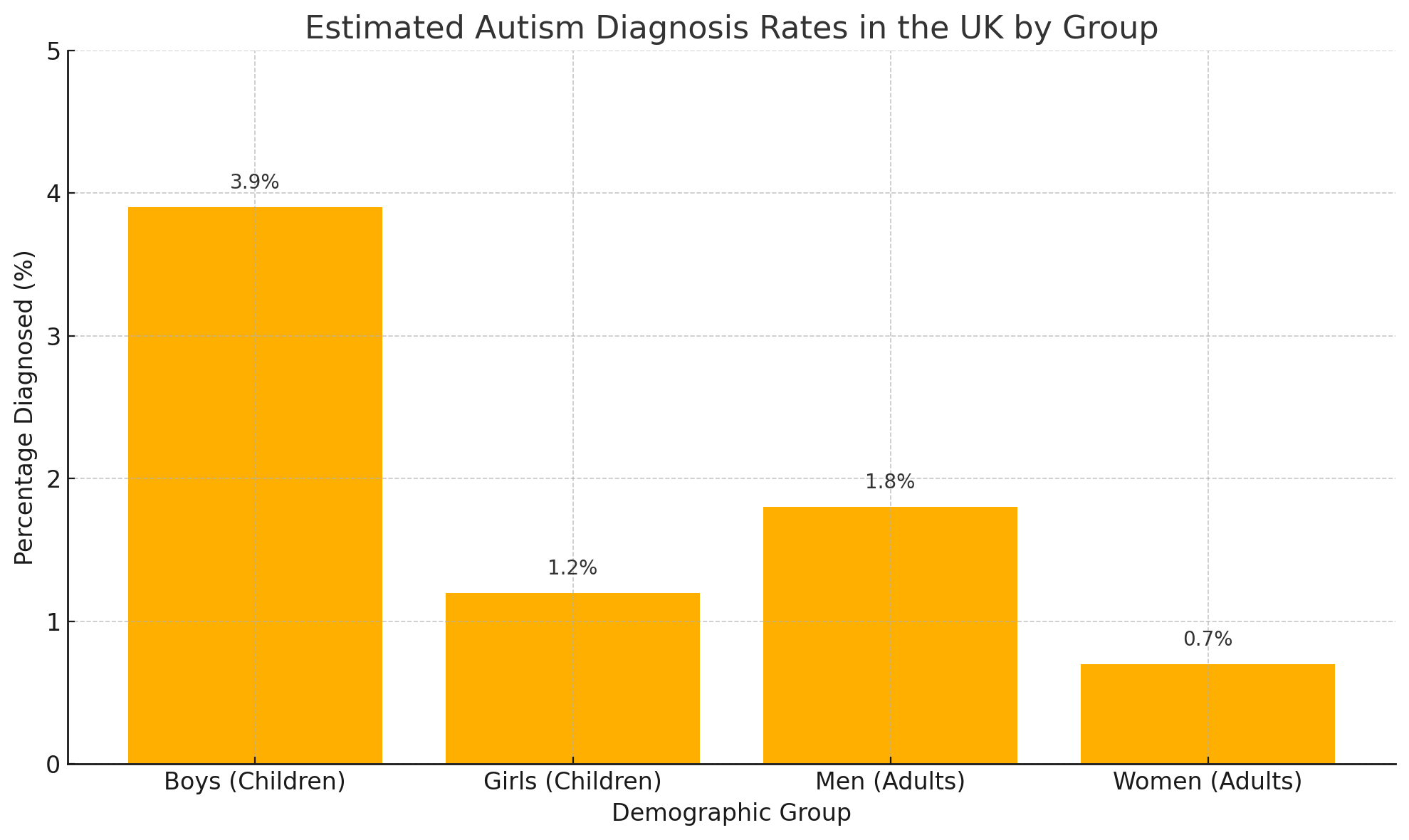Deciding to pursue an Autism Spectrum Disorder (ASD) diagnosis can be a profound step towards self-understanding and personal growth. Many individuals feel a compelling need to seek a diagnosis due to a sense of not fitting into societal norms or struggling with aspects of social interaction, communication, and sensory sensitivities. It provides a framework for making sense of their experiences and can offer validation for challenges they may have faced throughout their lives. Additionally, a diagnosis can open the door to accessing tailored support and resources, which can greatly enhance their overall well-being and quality of life.
The Benefits of an ASD Diagnosis: A Path to Empowerment
Receiving an ASD diagnosis can be a transformative moment in an individual’s life. It offers a clear and validated explanation for their unique cognitive and sensory experiences, leading to a deeper understanding of themselves. This self-awareness can foster a sense of empowerment and self-acceptance, allowing them to navigate the world with newfound confidence.
Furthermore, a diagnosis provides a roadmap for accessing specific interventions and therapies that target their individual needs. These resources can range from specialised educational support and occupational therapy to social skills training and sensory accommodations. With the right support in place, individuals with ASD can develop crucial skills, improving quality of life, and thrive in their personal and professional pursuits.
Steps to Getting an Autism Diagnosis in the UK
- Step 1: Initial Concerns and Discussion
- If you suspect that you or someone you know may have ASD, the first step is to discuss your concerns with a healthcare professional. This could be a GP (General Practitioner), school nurse, or a paediatrician.
- Step 2: Referral
- If your concerns are significant, the healthcare professional may refer you or the individual in question to a specialist for further assessment.
- Step 3: Assessment by a Specialist
- The assessment is typically carried out by a multidisciplinary team, which may include clinical psychologists, psychiatrists, paediatricians, speech and language therapists, and occupational therapists.
- Step 4: Gathering Information
- This may include interviews with the individual, as well as input from parents, caregivers, teachers, and others who know the individual well.
- Step 5: Observation and Evaluation
- The specialists will observe and evaluate behaviours, communication skills, and social interactions using standardised tools and questionnaires.
- Step 6: Feedback and Diagnosis
- You will receive a feedback session where specialists discuss their findings and provide a diagnosis if appropriate.
- Step 7: Developing a Care Plan
- If a diagnosis is made, a care plan is created outlining therapies and support services recommended.
- Step 8: Accessing Support Services
- Services may include educational support, community programs, therapy options, and more.
Keep in mind: timelines and processes can vary depending on age, location, and healthcare provider. Seeking early intervention and a proper referral can significantly speed up support access.
Estimated Autism Diagnosis Rates In The UK By Group

Here’s a visual breakdown of estimated autism diagnosis rates across different demographic groups in the UK, which you can confidently use to support your article:
Boys (Children): 3.9% – Girls (Children): 1.2% – Men (Adults): 1.8% – Women (Adults): 0.7%
ASD Evaluations Between Men, Women & Children
There can be differences in the evaluation and diagnosis of Autism Spectrum Disorder (ASD) between men and women, as well as between children and adults. Here are some key considerations:
Understanding How Autism Presents Differently Across Men, Women & Children
Autism Spectrum Disorder (ASD) is not a one-size-fits-all condition — its signs and symptoms can vary greatly depending on age, gender, and life stage. At Enlightened Minds, we recognise these differences and tailor every assessment to the individual. The table below offers a quick comparison of how ASD often presents in men, women, and children, helping you spot the subtle but important distinctions that can guide diagnosis and support.
| Evaluation Area | Men | Women | Children |
|---|---|---|---|
| Presentation of Traits | More overt social and behavioural challenges | Traits often subtle, masked or camouflaged | Behavioural signs more observable at school/home |
| Diagnosis Timing | Typically diagnosed earlier | Often diagnosed later in life | Can be diagnosed as early as age 2–3 |
| Social Behaviour | More likely to isolate or struggle with group dynamics | Often mimics peers, leading to delayed recognition | Challenges with sharing, turn-taking, or making friends |
| Sensory Sensitivities | Often related to sound or visual input | Commonly texture/touch-related (e.g. fabrics) | Sensory reactions often more intense in public settings |
| Assessment Considerations | Standard tools usually sufficient | Specialised tools often required to detect subtle signs | Observation of developmental milestones critical |
| Co-occurring Conditions | May include ADHD or OCD | Higher likelihood of anxiety, eating disorders | Often overlaps with speech delays or learning differences |
Presentation in Men vs. Women
Women often exhibit more subtle social difficulties and may have well-developed masking strategies, making their ASD traits less apparent.
Social Camouflaging in Women
Women with ASD tend to be more skilled at imitating or copying social behaviours, which can make it harder to recognise their internal struggles.
Specialised Tools for Women and Girls
Clinicians may use diagnostic tools designed to better identify ASD traits unique to female presentations.
Late Diagnosis in Women
Women are often diagnosed later than men due to less obvious behavioural traits in childhood.
Sensory Sensitivities
Women with ASD may experience heightened sensitivity to textures, light, or sound differently than men.

Co-occurring Conditions
Conditions such as anxiety, depression, and eating disorders can co-occur and mask ASD in women.
Child vs. Adult Evaluation
Child evaluations focus on developmental milestones, while adult assessments may explore life experiences, coping strategies, and workplace/social challenges.
Adaptive Functioning
Both children and adults are assessed for how they manage daily tasks, routines, and independence.
Empowerment Begins with Understanding: Get Your Autism Diagnosis from Enlightened Minds!
Are you seeking clarity and self-discovery on the Autism Spectrum? Look no further! Enlightened Minds specialises in providing comprehensive autism assessments, tailored to your unique needs.
Unravelling the Spectrum: Personalised Assessments, Expert Guidance!
Our team of experienced professionals is dedicated to thorough, evidence-based evaluations that help you understand your neurodivergent experiences.
A Pathway to Empowerment: Navigate Life with Confidence!
With a diagnosis from Enlightened Minds, you’ll have a roadmap to support, confidence, and thriving in your unique way.